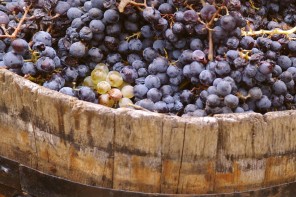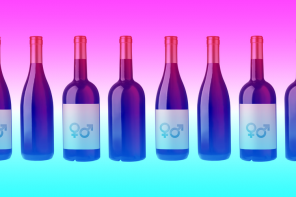Do you have that friend? The one that needs a wine to be stamped with a 90+ rating before they’ll drink it? Would their head explode if you told them you happened to enjoy a wine that only got 86 points from Wine Spectator? These folks are real: cherry-pickers, rating chasers, score whores.
We’re sure you’ve seen scores and ratings plastered on the bottlenecks of this wine or that wine. Maybe you came across a bottle with a good score and thought: “Aw, what the heck. I’ll try it. If they say it’s good, it must be good.”
Prior to the late 70’s/early 80’s, there was no “points” system. A wine critic named Robert M. Parker pioneered the rating system with his newsletter The Wine Advocate. Since that day, the topic has been ferociously debated.
The main issue is this: wine is subjective. No one has the right to tell you what you like or don’t like. Wine is also emotive, and our opinions of it are always in flux. One’s enjoyment of a wine is colored by the moment they’re in, who they’re with and their ever-changing mindset. Can you assign a numerical value to all of this? No way.
A wise man once said, “You never taste the same wine twice. Either you’re different or the wine is different.” Ratings can’t change or adapt. Most importantly, they can’t take the drinker into account. Considering this, those ratings start to seem pretty meaningless pretty quickly.
Can ratings do anything at all for us? Well, wine critics are professionals. These people have tasted quite a bit of the stuff and study it quite a bit too. As such, you can feel moderately assured that if something is highly rated, it will meet certain basic criteria for whatever grape or style it is.
Does a wine offer, for example, the typical characteristics that a Cabernet Sauvignon grape is known for? If it’s a 90+ rated wine, there’s a good chance it does. However, you may still hate it. At the end of the day, wine ratings can’t say anything useful about “good” or “bad” but they can be solid markers of type.
Sadly, the buck stops there. Even more tragically, many winemakers design their wines to cater to the tastes of the critics they seek good scores from. They stop thinking about their drinkers and forget about their own visions for the wines they make. Chasing scores forms trends and bubbles where opinion is paraded as fact and the drinker is left out of the party.
The good news is that the internet and social media have truly changed the way younger generations think about wine and wine scores. You can drink wine for several years and never once pick up an issue of Wine Spectator, thanks to apps like Delectable and Vivino.
The most solid piece of advice on ratings we can give is this: keep tasting and keep exploring. Never skip a wine because it isn’t rated, and resist the urge to seek out the score of a bottle before buying. Spend some time with the wine and form your opinion. It won’t be wrong or right, it’ll be yours.
If someone across the country thought a wine sucked? Whatev! Maybe they were just having a bad day, but that doesn’t mean you have to also.








